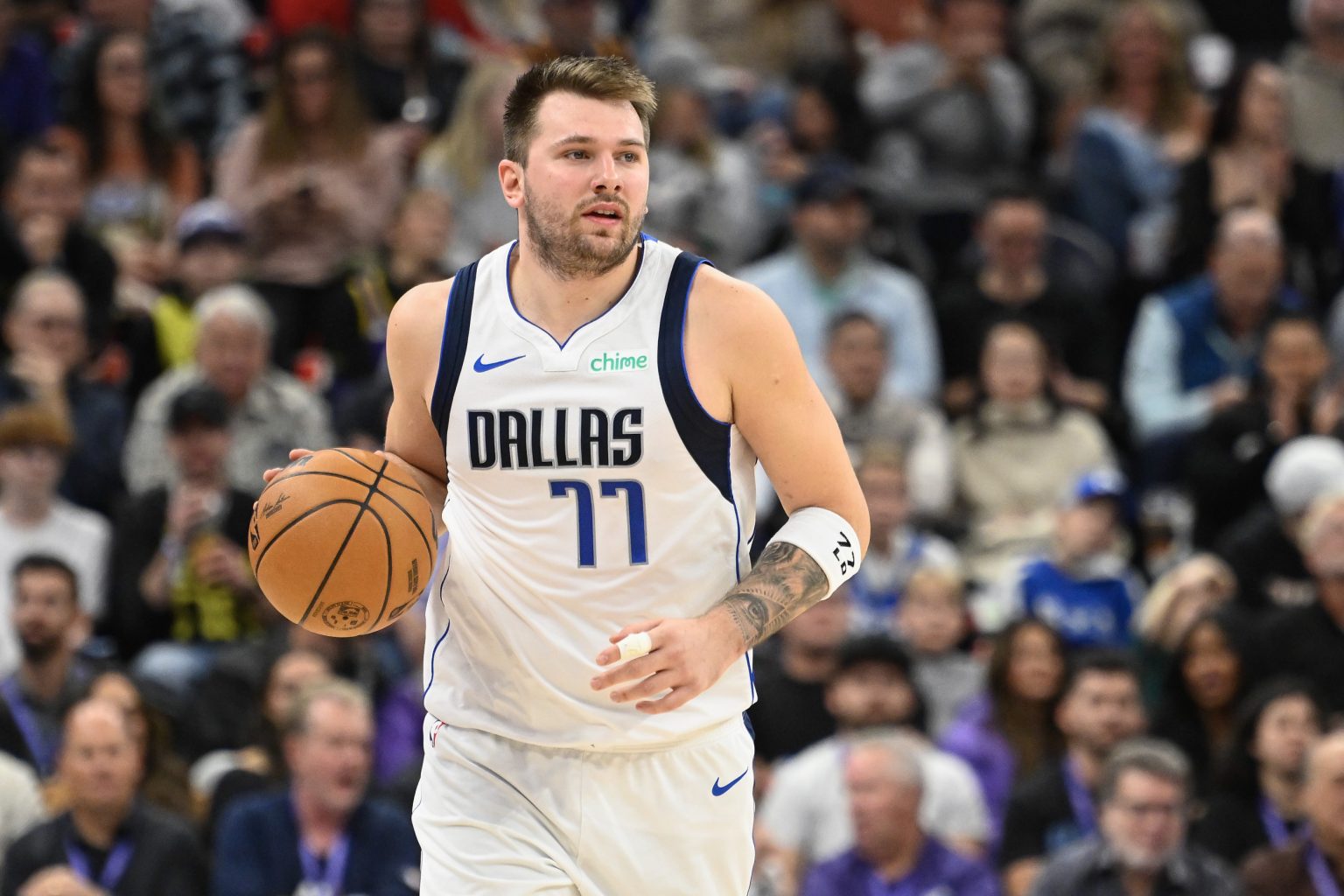The National Basketball Association (NBA) experienced a seismic shift last night as two of its most prominent franchises, the Los Angeles Lakers and the Dallas Mavericks, executed a trade of monumental proportions. The centerpiece of this exchange involved two of the league’s brightest stars: Luka Doncic, the Mavericks’ Slovenian prodigy, and Anthony Davis, the Lakers’ formidable big man. The trade sent shockwaves through the basketball world, prompting fervent speculation and analysis about the motivations behind the deal and its potential ramifications for both teams involved. The sheer magnitude of this transaction places it among the most impactful trades in NBA history, reshaping the landscape of the league and sparking intense debate among fans and analysts alike.
The trade represents a significant gamble for both teams. The Lakers, acquiring Doncic, gain a generational talent capable of single-handedly transforming a franchise. His exceptional playmaking abilities, scoring prowess, and captivating style of play make him one of the league’s most electrifying players. For the Lakers, landing Doncic provides a potential successor to LeBron James, ensuring the team’s long-term competitiveness and offering the opportunity to build a championship-contending team around him. Conversely, the Mavericks, in acquiring Davis, add a dominant interior presence known for his defensive acumen and offensive versatility. While Davis has struggled with injuries in recent seasons, his potential to regain his peak form makes him a valuable asset for Dallas. The Mavericks likely view Davis as a complementary piece to their existing roster, hoping his presence can bolster their defense and provide a reliable scoring option alongside other key players.
The immediate aftermath of the trade has been dominated by Luka Doncic’s apparent silence. Reports indicate that Doncic has not communicated with Mavericks General Manager Nico Harrison since the trade became public. Harrison, in a recent press conference, addressed the situation with a touch of humor, suggesting that Doncic’s reluctance to engage was understandable given the circumstances. He confirmed attempts to reach out to Doncic through both calls and text messages, acknowledging the delicate nature of the situation and the likely emotional impact of such a significant transition. This lack of communication, while not entirely surprising, adds another layer of intrigue to the already captivating narrative surrounding the trade. It raises questions about Doncic’s feelings regarding the move, his relationship with the Mavericks organization, and his future with the Lakers.
The implications of this trade extend far beyond the two teams directly involved. The shift in star power has the potential to reshape the balance of power within the Western Conference and perhaps the entire league. The Lakers, with the addition of Doncic, immediately become a formidable contender, potentially challenging the dominance of teams like the Denver Nuggets and the Phoenix Suns. The Mavericks, on the other hand, face a period of transition and uncertainty, needing to reconfigure their roster and playing style around Davis. The ripple effects of this trade will likely influence player movement across the league, as teams adjust their strategies in response to the changing landscape. The trade could also trigger a renewed arms race in the Western Conference, as other teams seek to acquire talent to compete with the newly strengthened Lakers.
The trade’s impact extends beyond the court, significantly influencing the business and marketing aspects of the NBA. Doncic’s arrival in Los Angeles, a major media market, is expected to boost the Lakers’ brand and generate significant revenue through merchandise sales, ticket sales, and media exposure. Similarly, the Mavericks’ acquisition of Davis, while not as impactful from a marketing perspective, still represents a significant addition to their roster and could attract new fans and sponsors. The trade also generates broader interest in the league, captivating casual fans and reigniting rivalries among passionate fan bases. This increased attention translates into higher television ratings, greater social media engagement, and overall growth for the NBA.
The long-term consequences of this trade remain uncertain. The success of the trade for both teams will depend on a myriad of factors, including player performance, team chemistry, coaching strategies, and injury management. Whether Doncic can lead the Lakers to championship contention and whether Davis can regain his peak form and contribute meaningfully to the Mavericks will ultimately determine the success of this blockbuster trade. Only time will tell whether this bold move will be remembered as a masterstroke for both franchises or a gamble that backfired. However, one thing is certain: the NBA landscape has been irrevocably altered, and the reverberations of this trade will be felt throughout the league for years to come.

